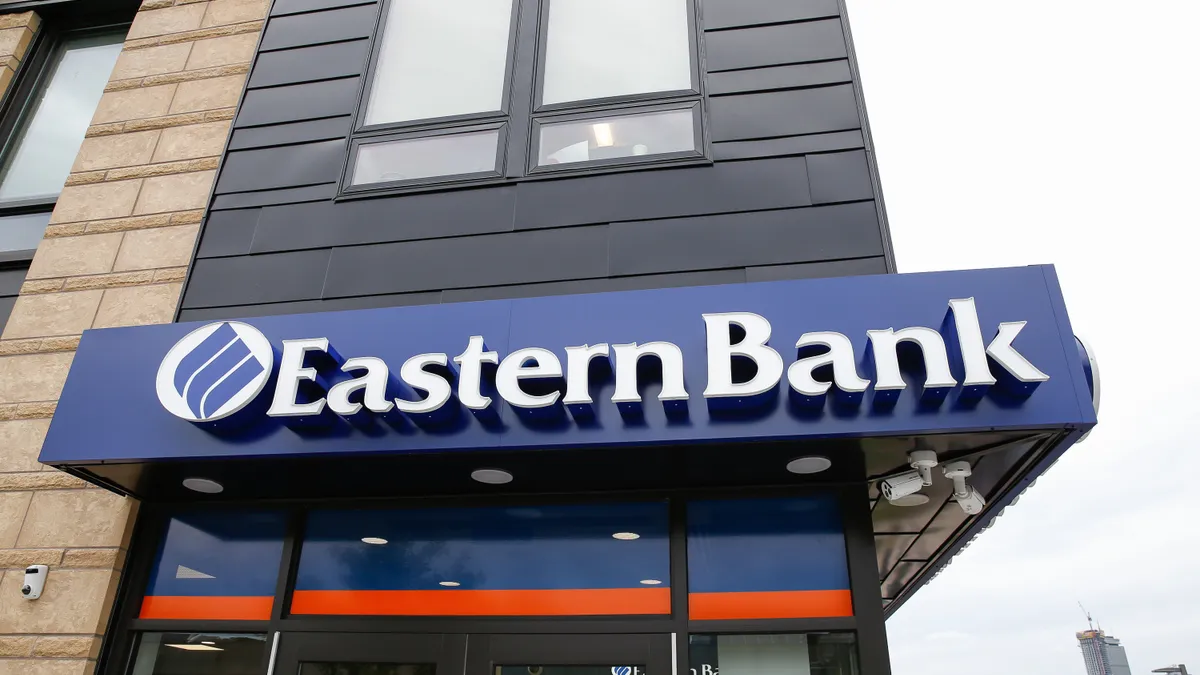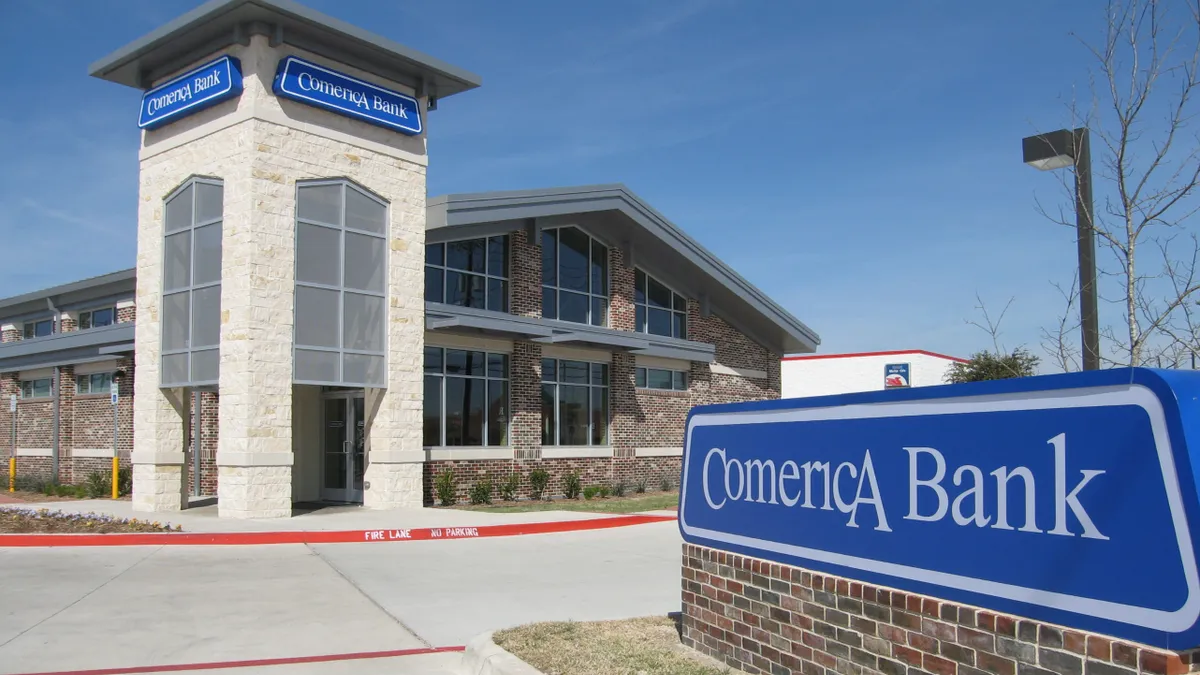After a slow 2020, hampered by the economic uncertainty surrounding the coronavirus pandemic, bank mergers appear to be picking up.
From the start of the year through April 19, 43 bank mergers were announced, according to S&P Global Market Intelligence.
That’s slightly ahead of the same period in 2020, a year that saw a total of 110 announced mergers — less than half of 2019’s 261, according to consulting firm Deloitte.
Boston has seen a concentration of merger-related activity this year, with four deals announced in as many months.
SVB Financial Group, the parent company of Silicon Valley Bank, kicked off the activity in early January when it announced it would buy Boston Private Financial Holdings for $900 million to boost its wealth-management business. Boston Private said Tuesday it had garnered enough shareholder votes to proceed with the deal, American Banker reported.
In February, M&T Bank said it agreed to buy Bridgeport, Connecticut-based People’s United Financial for $7.6 billion. M&T said People's United's Bridgeport office would serve as a New England regional headquarters for the Buffalo, New York-based bank.
April saw two merger announcements in the Boston area: Eastern Bank’s plans to pay $642 million for Medford, Massachusetts-based Century Bank, and Rockland Trust Co.’s plans to purchase East Boston Savings Bank for $1.15 billion.
"It's all about the need for scope and scale," said Century Bank CEO Barry Sloane, on the uptick in mergers in the region. "Greater Boston is a very attractive market. It's a growth market, and therefore there are lots of in-market players who are interested in expanding and reaching scale. That's the key, and it’s particularly true for public companies."
Public banks need to be able to show the investing community they can have superior earnings growth and return on equity, Sloane said.
"That's very difficult to do with small scale," he said.
Sloane, who became Century’s CEO in 2009, will retire following the merger, which is expected to be completed this fall.
The deal would create an entity with about $22.4 billion in assets that would become the third-largest New England-based retail bank, behind Providence, Rhode Island’s Citizens Bank ($183 billion) and Waterbury, Connecticut-based Webster Bank (about $30 billion), according to The Boston Globe. (Webster, incidentally, announced last month it would pay $5.1 billion in stock to buy Pearl River, New York-based Sterling Bancorp in what the companies called a merger of equals.)
"That's the way of the future," Sloane said. "It's why 1,000 banks have merged away in the United States in the last five years. It's a process that continues."
Minimum viable size
As costs — including technology and compliance — increase in the banking world, the desire to consolidate will continue, said Ron Shevlin, managing director of fintech research at Cornerstone Advisors.
"To really be able to compete effectively, a lot of these financial institutions need to scale up a bit," said Shevlin, who is based in Boston.
What’s happening in the Boston market, Shevlin said, represents banks seeking a "minimum viable size" to compete.
"I'm not sure that there's a single number you can say, but I think a lot of bankers would say getting to around a $10 billion asset level is what you really need to be able to have the resources to compete effectively," he said.
But not all lenders are entering these deals to gain scale. Geographic expansion is likely a driving factor behind SVB's plans to acquire Boston Private, Shevlin said. Additionally, it's a strong wealth-management play, he said.
But Shevlin said he doesn’t think merging for geographic expansion is necessarily the best strategy for every bank.
M&T’s proposed acquisition of People’s United, for example, would create a $205.4 billion-asset entity that covers 12 states from Maine to Virginia, plus the District of Columbia, and give M&T an entryway into the Boston market.
M&T’s deal is an example of how bankers still feel that having a branch presence is the best way to break into a new market, Shevlin said.
"It’s traditional thinking," he said. "Acquiring banks for geographic expansion is not the way to go."
Banks should pay closer attention to how digital challengers like Chime and Varo are gaining traction, Shevlin said.
"All of the fintech companies, they're not geographically limited and they're national in scope. They use digital channels to reach and deliver customers," he said. "There's no reason why the M&Ts of the world can't do the same and create a presence without having to acquire a whole branch network and a bunch of banks that have a physical presence."
Formidable competitors
As the Boston region’s local lenders team up, they could be better positioned to challenge the state’s largest players — Bank of America, Citizens Bank, Santander Bank and TD Bank, which held more than half of the state’s deposits as of mid-2020, according to the Boston Business Journal.
"Eastern’s probably primed to win a lot of market share from larger players," Damon DelMonte, a Keefe Bruyette & Woods analyst, told the publication.
Bank mergers are expected to accelerate to pre-pandemic levels after last year’s slowdown, Shevlin said.
"What we're seeing in the early part of 2021 is that there is pent-up demand that was stifled somewhat in 2020," he said. "We're going to see this play out over a couple of different aspects in terms of one being geographic expansion, and the other being the smaller institutions looking to achieve economies of scale."
Sloane said Eastern would most likely pursue additional mergers after Century Bank deal — even if he'll be "off the playing field."
"There are lots of capable players remaining, and I suspect, certainly in Greater Boston, there will be additional transactions," he said.





















